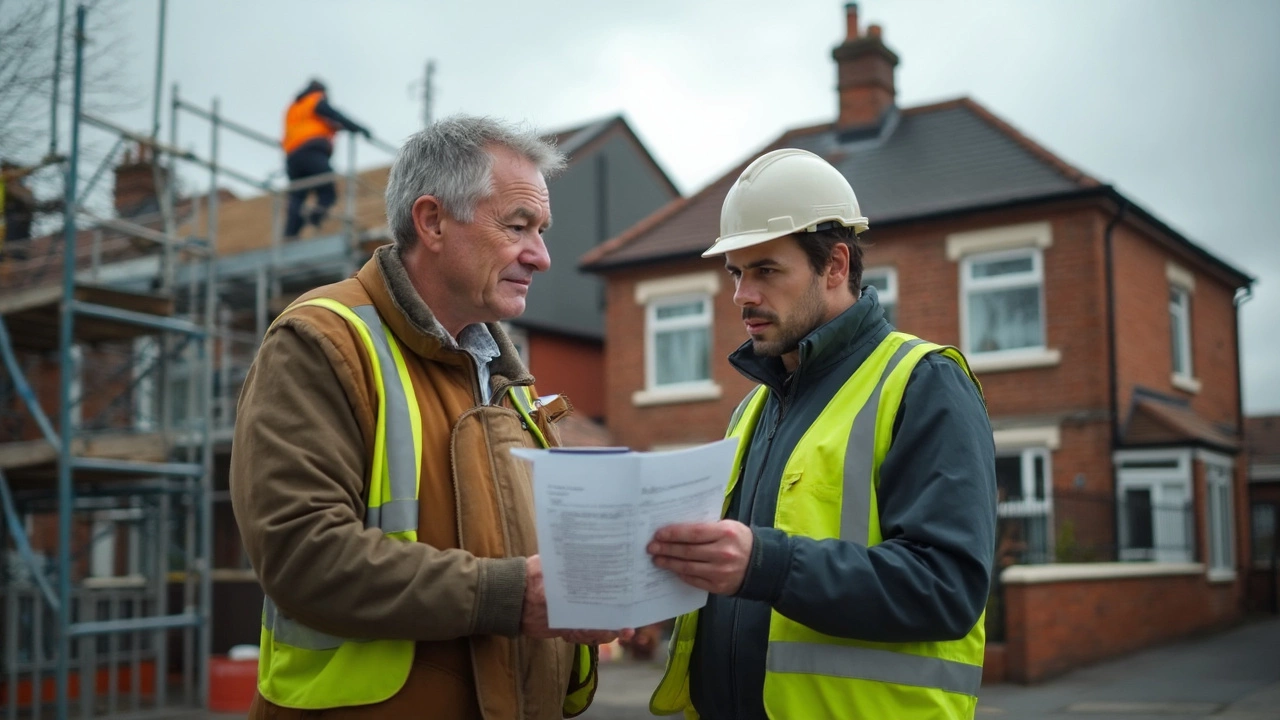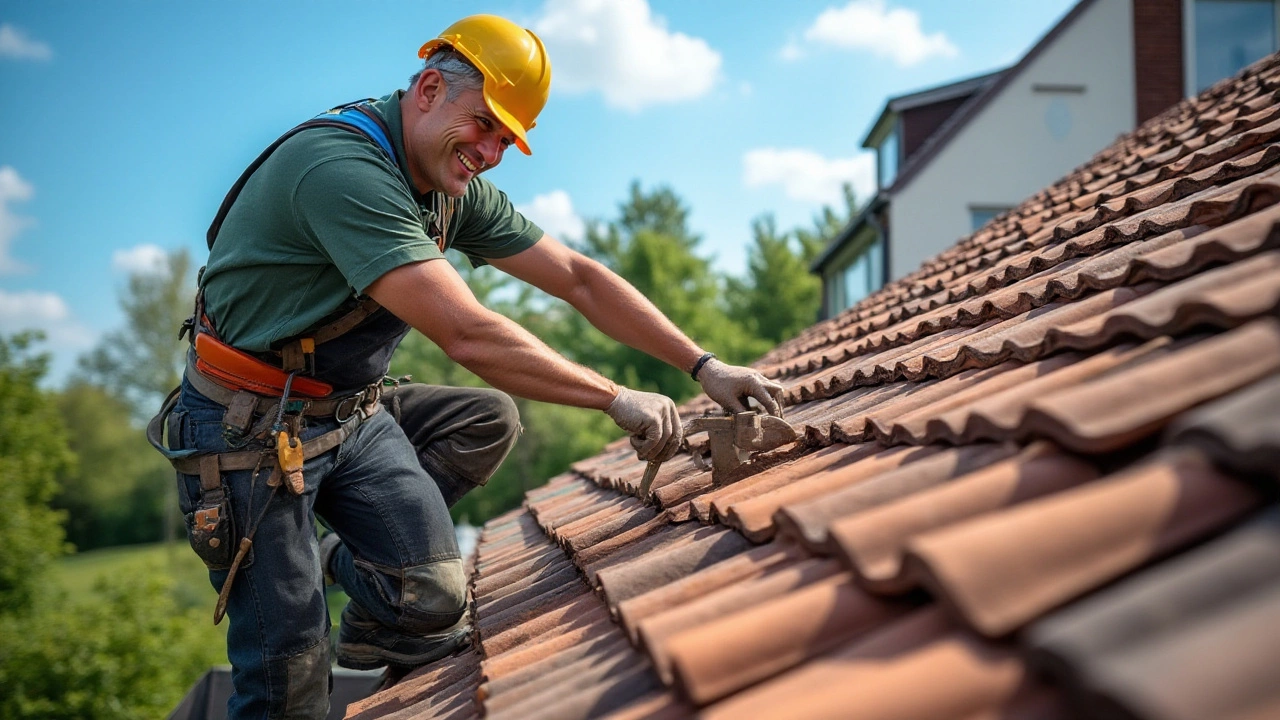Roofing Services: Costs, Installation, Materials & Maintenance
When working with roofing services, the range of professional tasks that keep a building’s roof functional, safe, and visually appealing. Also known as roof repair and installation, it covers everything from fixing leaks to installing brand‑new roofing systems. Understanding the roof replacement cost, the total expense of removing old shingles and installing a fresh roof helps homeowners budget wisely. Choosing the right roofing materials, such as asphalt shingles, metal panels, or slate tiles influences durability, energy efficiency, and curb appeal. Regular roof inspection, a systematic check for damage, wear, and potential leaks catches problems early, while effective roof maintenance, ongoing upkeep like cleaning gutters and sealing joints extends the roof’s lifespan.
Key Aspects of Roofing Services
First, roofing services encompass three core activities: repair, installation, and maintenance. Repair addresses immediate issues like cracked tiles or damaged flashing, preventing water intrusion and structural damage. Installation involves the full replacement of an aging roof or the addition of a new roofing system on a new build. Maintenance is the preventative layer—cleaning debris, checking underlayment, and resealing seams—to avoid costly repairs down the line. Each activity relies on high‑quality roofing materials, which differ in cost, lifespan, and suitability for various climates. For example, metal roofs offer excellent longevity and reflectivity, while asphalt shingles provide affordability and ease of installation.
Next, the roof replacement cost is shaped by three main factors: material choice, labor rates, and the complexity of the existing roof structure. A simple asphalt shingle job may run between £5,000 and £9,000, whereas premium slate or copper can exceed £30,000. Labor costs vary regionally; skilled crews in urban areas charge more, but they also bring expertise in handling complex designs. Complexity includes roof pitch, number of valleys, and any structural reinforcements needed. Homeowners can lower expenses by clearing the site of obstacles, obtaining multiple quotes, and timing the project during off‑peak seasons when contractors have more availability.
Material selection is a decision that blends aesthetics, performance, and budget. Roofing materials each have distinct attributes: asphalt shingles are lightweight and resistant to wind; clay tiles offer fire resistance and a Mediterranean look; metal panels provide low maintenance and energy savings; while slate delivers a timeless elegance with a lifespan of 100+ years. The right choice depends on climate—metal excels in snowy regions due to its slip‑away snow capability, whereas clay tiles thrive in hot, dry zones. Sustainability is another angle; recycled metal and solar‑integrated shingles let homeowners reduce carbon footprints while still protecting their homes.
Before any installation or major repair, a thorough roof inspection is essential. Inspectors evaluate the condition of decking, flashing, ventilation, and drainage systems. They use tools like moisture meters and infrared cameras to spot hidden moisture pockets that could lead to mold or rot. Findings from the inspection guide the scope of work, influencing material needs and cost estimates. A detailed inspection report also helps insurance providers assess claims accurately, ensuring homeowners receive fair compensation for covered damages.
Once the roof is in place, ongoing roof maintenance protects the investment. Simple tasks such as clearing leaves from gutters, removing moss, and checking that seams remain sealed can be performed quarterly. More thorough annual checks should include inspecting for cracked shingles, verifying that vent stacks are unobstructed, and confirming that flashing around chimneys and skylights remains airtight. Homeowners who schedule regular maintenance often avoid emergency repairs that disrupt daily life and inflate costs.
Beyond the technical side, selecting a qualified contractor matters. Look for companies with proper licensing, insurance, and proven track records in your area. Reviews, portfolio examples, and references provide insight into workmanship quality and reliability. A reputable contractor will conduct a transparent cost breakdown, explain warranty terms, and communicate the project timeline clearly—reducing surprises and fostering trust.
All these pieces—costs, materials, inspections, and maintenance—work together to ensure your roof performs for decades. Below you’ll find a curated set of articles that dig deeper into each topic, from budgeting tips for a £30,000 roof project to DIY inspection checklists and material comparisons. Dive in to arm yourself with the knowledge you need to make confident decisions about your roof.
Roof Work Costs: Why Is Roofing So Expensive?
Roof work often shocks homeowners with its price tag, leaving many to wonder what drives up the cost. This article breaks down the real reasons behind expensive roofing projects, from labor and materials to safety and insurance. It uncovers hidden details that roofers don't always mention up front. Tips for trimming costs and understanding a roofer's estimate are included. Get a clear look at what you're really paying for when fixing or replacing a roof.
full articleHow to Negotiate the Price of a New Roof
Negotiating the price of a new roof can feel daunting, but with the right approach, you can save money and get the best value. This article dives into effective strategies for negotiating with roofing contractors, including understanding market prices, preparing for discussions, and using negotiation tactics. It also covers common pitfalls to avoid and why roof quotes can vary significantly. Get ready to navigate your roofing project with confidence.
full articleExploring Roofing Services: Understanding the Essentials
Roofing services encompass a variety of activities related to the installation, repair, and maintenance of roofing systems. These services ensure the structural integrity and longevity of a building's roof, which is essential for protection against weather elements. Professional roofing contractors offer skilled craftsmanship and industry expertise to address any roofing needs. Understanding the different aspects of roofing services can help homeowners make informed decisions for their property's upkeep.
full article






